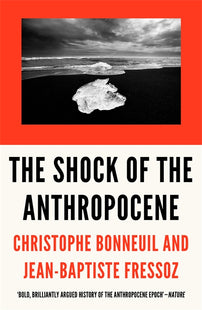The Bruno Latour paradox: from materialism to prophetic idealism
In this short article, Jean-Baptiste Fressoz explores the paradox of Bruno Latour's materialism as a historian and sociologist of science and his idealism as a philosopher of ecology.

This article was originally published by Le Monde on 26 October 2022.
For scholars of my generation, historians or sociologists investigating science and technology, reading Bruno Latour was a great stimulus. Laboratory Life (Sage, 1979) and The Pasteurization of France (Harvard University Press, 1993) offered an extraordinarily refreshing description of scientific work. Far from epistemological abstractions – think of the work of Karl Popper, which is all about theories – Latour’s originality was to study not ‘science’ but scientific practices, not the finished product but the work of proof, not a few great scientists but the scientific community and its institutions, and to use the ethnographic method for this purpose: to describe and describe again, ever more finely, the gestures, the instrumental work, the patient stabilisation of phenomena, their inscription in material traces and the transposition of this work into the particular form of the scientific article.
Bruno Latour was also a formidable populariser: Science in Action (Harvard University Press, 1987) remains an unequalled synthesis of work in the history and sociology of science and technology, a field in which Latour was one of the leading figures. It is this Latour, an ethnographer of science and technology, who became the international ‘star’ that we know. This first Latour was also radically empirical and materialist. His positions were close to those of Marxist historians of science, in particular Simon Schaffer and Steven Shapin – Latour’s We Have Never Been Modern (Harvard University Press, 1993) was presented as an exegesis of their Leviathan and the Air-Pump (Princeton University Press, 1985).
The choice of idealism
The paradox is that, in the second part of his career, as a public intellectual of ecology, Latour suddenly abandoned this method. His late interest in the climate and environmental question was approached as a philosopher and historian of ideas. Politics of Nature (Harvard University Press, 2004) was based on the – historically false – observation that, since the environmental question was radically new, politics had to be completely refounded. Following Michel Serres’s book The Natural Contract (University of Michigan Press, 1995), Latour composed a new ‘constitution’ to welcome ‘non-humans’ into our ‘collectives’.
[book-strip index="1" style="buy"]In France in the 1990s, ecology seemed to offer a playground for budding Rousseaus, a philosophical clean slate, and a good pretext for getting rid of the ‘old social sciences’ that had neglected the environment. This was intellectually very exciting, much more so than the study of production and its consequences. The result was also abstract and somewhat utopian: nowhere was there any mention of matter and production, consumption and economics, companies and machines, capital, or lobbies.
This choice of idealism was also apparent in Facing Gaia (Polity, 2017). Against the entire history of climate and environmental sciences, Latour resurrected the figure of the great solitary and saving genius, in this case James Lovelock, whose ‘Gaia hypothesis’ had supposedly accomplished a scientific and cosmological revolution. In recent years, Bruno Latour’s work took on a prophetic tone, as the environmental issue required, in his eyes, a form of conversion, a feeling of belonging to Gaia.
The paradox is, therefore, that Latour studied the apparently immaterial things of science and law as a materialist, and studied the fundamentally material problem of the climate crisis as an idealist. This paradox, no doubt, explains his stance against degrowth, replaced by the vague injunction to ‘land’. Fortunately, Latour was not simply an ‘intellectual of ecology’: he was, first and foremost, a scientist whose writings marked a generation of researchers. And for ecologists, it is his early work that is important: describing the work of scientists is the best way to give them the trust they deserve.
Jean-Baptiste Fressoz is a historian and a researcher at the CNRS.
Translated by David Fernbach
